December 18th, 2018 by IISG
If you are a graduate student interested in combining your education and experience with policy, marine sciences or coastal community resiliency, consider applying for one, or even two, of these fellowships. The opportunities below are open to graduate students enrolled in a master’s or doctorate program. For more information, please visit our Fellowships page or contact Angela Archer at amcbride@purdue.edu or (765)496-3722.
John A. Knauss Fellowship
The Knauss fellowship provides a unique educational experience to students who have an interest in ocean, coastal and Great Lakes resources and in the national policy decisions affecting those resources. The program matches highly qualified graduate students with “hosts” in the legislative and executive branches of government located in the Washington, D.C. area for a one year paid fellowship.
NOAA Coastal Management Fellowship
The Coastal Management Fellowship was established to provide on-the-job education and training opportunities in coastal resource management and policy for postgraduate students and to provide project assistance to state coastal zone management programs. The program matches postgraduate students with state coastal zone programs to work on projects proposed by the state.
National Marine Fisheries Service Fellowships
These fellowships are aimed at Ph.D. candidates, who are United States citizens, interested in the population dynamics of living marine resources and the development and implementation of quantitative methods for assessing their status. The marine resource economics fellowship concentrates on the conservation and management of marine resources.
March 21st, 2017 by iisg_superadmin
We depend on nature for our health and well-being in what seems countless ways—from food, medicine, and shelter, to our quality of life. Yet when decision makers plan for a community’s future, there may be no concrete value ascribed to natural areas.
An IISG study supported by NOAA through the Indiana Department of Natural Resources, and Indiana Lake Michigan Coastal Program, has begun the process of defining the value of Indiana’s aquatic ecosystems.
“Ecosystem services are the benefits that people, communities, and economies receive from nature,” said Leslie Dorworth, IISG aquatic ecology specialist. “For example, a healthy food web in Lake Michigan is part of a thriving ecosystem, but it can also provide a benefit to those who engage in fishing.”
Dorworth, and Margaret Schneemann, IISG resource economist, sat down with 10 Indiana natural resource managers and decision makers to define coastal ecosystem services in the region. They identified the biggest threats to natural areas as nutrient pollution from a variety of sources, climate change, and physical changes to water bodies or water flow. The participants prioritized ecosystem services, including water purification, native flora and fauna, spiritual and aesthetic recreation, and the combination of erosion, sediment and flood control.
The list of priority coastal ecosystem benefits developed in this process became the driver for Dorworth and Schneemann’s literature search of studies in the Great Lakes region. They reviewed available economic value estimates of these coastal ecosystem services, finding only a few that included Indiana.
“We also found a mismatch in what ecosystem services were prioritized by coastal zone managers and those that are studied,” said Schneemann. “For example, there is a lack of research on spiritual and aesthetic values of the coastal zone, which is a top ecosystem service as identified by stakeholders along the Indiana coast.”
“The next step in this process is to work with Indiana coastal resource managers to refine research questions that when answered, will help them make decisions that are informed by what is important to people,” she added.
Illinois-Indiana Sea Grant is a part of University of Illinois Extension and Purdue University Extension.
December 19th, 2016 by IISG
My fascination with water began during my childhood. Growing up under strict water conservation measures in Singapore eventually led to working on nutrient loading issues relating to the Illinois River, and finally to my doctoral research on water quality in Alaska.
I brought all this to the Knauss Fellowship placement week in Washington D.C., where I proudly represented the Illinois-Indiana Sea Grant. Placement week started out with a brief overview of the structure of the House and Senate, and the processes involved in creating and passing legislation.
Then came presentations from the 23 host offices, during which I and the other 11 legislative finalists were introduced to the personal offices of various members of Congress from across the country, and House and Senate committees that directly work on legislation concerning the nation’s oceans, atmosphere, and freshwater resources.
Over the next two and a half days, I interviewed with 20 different host offices. While admittedly they were grueling, the interviews were also very rewarding. Through them, I learned about key pieces of legislation that impact much of the freshwater and marine resources I had previously worked on. More importantly, the interviews also enabled me to get to meet some of the incredible people serving in Congress as well as their staff, whose work for the benefit of their constituents is truly remarkable. Getting placed in a congressional office could not have been a better end to placement week for me.
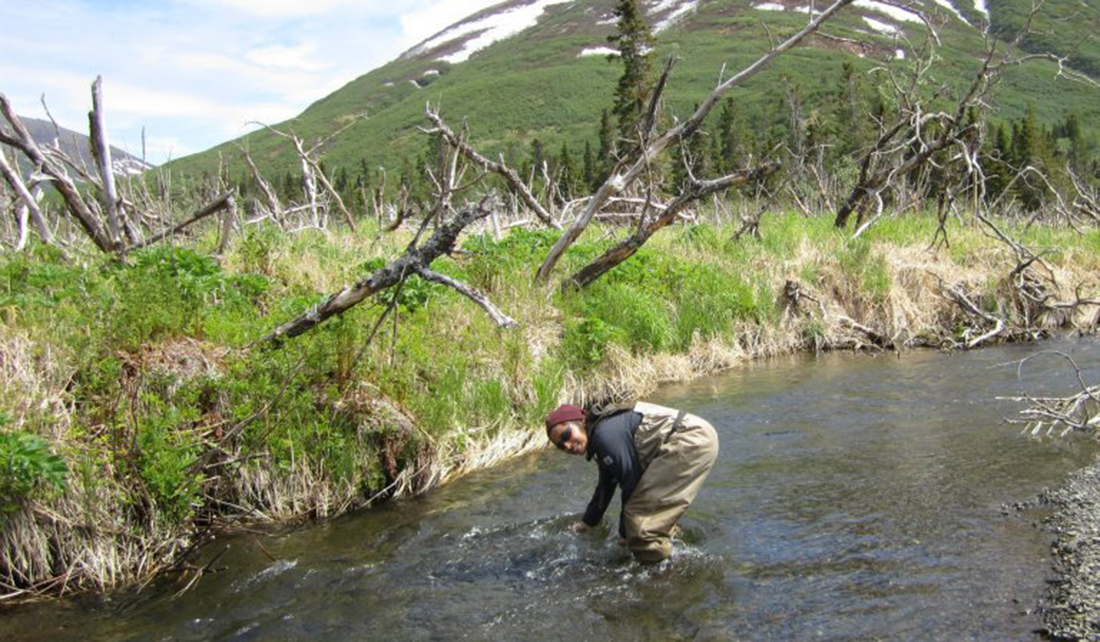
I am very excited to be a 2017 Knauss Fellow in the office of California U.S. Rep. Jared Huffman. I highly respect the path Rep. Huffman took before entering office, and the legislation he has sponsored and co-sponsored since then, especially in regard to natural resources. I look forward to directly assisting Rep. Huffman with his work on the House Committee on Natural Resources, with an emphasis on the Water, Power, and Oceans Subcommittee, which has oversight jurisdiction for NOAA fisheries and coastal issues. I also look forward to working with the committee staff, staff from other congressional offices, representatives from industry, non-profit groups, district field staff, and constituents living in California’s 2nd district.
Additionally, I will serve as the co-director of the bipartisan Congressional Wild Salmon Caucus. Given the grave issues California and the nation are currently facing in terms of water and coastal resources, I am confident that serving as a Knauss Fellow in this office over the next year will teach me a great deal.
Illinois-Indiana Sea Grant is a part of University of Illinois Extension and Purdue Extension.
November 16th, 2016 by IISG
The first of hopefully many recreational fishing workshops brought together more than 40 researchers, managers, stakeholders, and anglers last week to Hammond Marina in Indiana to learn about food web research, updates on fisheries, and ongoing monitoring in southern Lake Michigan.
Mitchell Zischke, IISG research and extension fishery specialist, organized the event.
“I have presented research at similar workshops for Lake Huron hosted by Michigan Sea Grant. These workshops were well attended and a great opportunity for anglers, scientists, managers, and others to interact,” said Zischke. “I wanted to develop a similar program for southern Lake Michigan, particularly in light of recent ecosystem and fishery changes like the declining populations of alewife.”
The five speakers hailed from NOAA Great Lakes Environmental Research Laboratory, U.S. Geological Survey Great Lakes Science Center, U.S. Fish and Wildlife, Ball State University, and Illinois Natural History Survey.
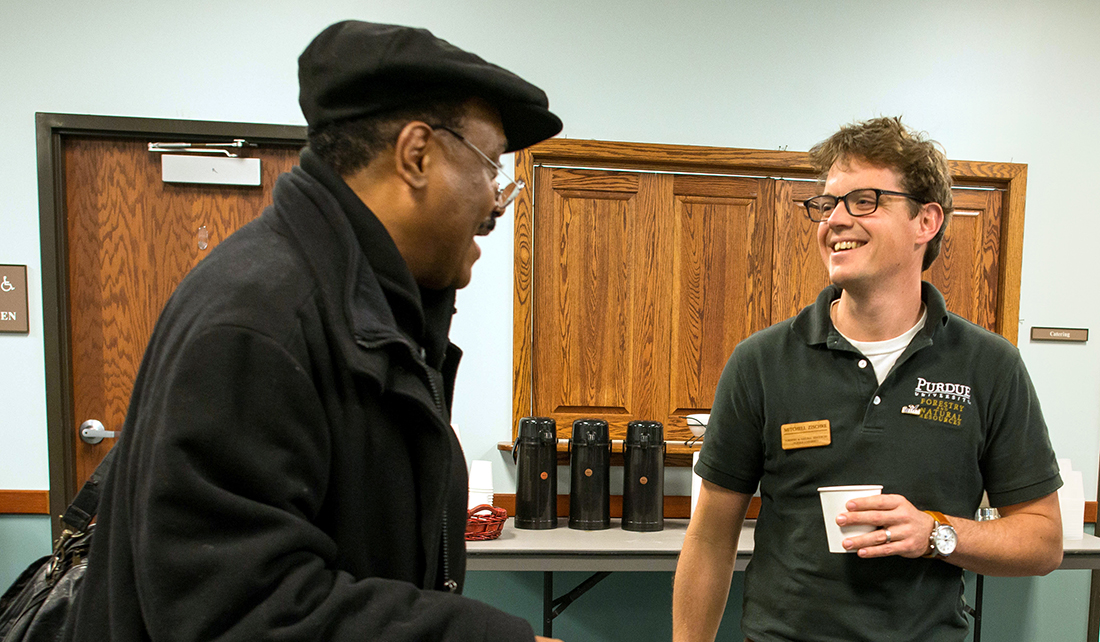
Mitchell Zischke, IISG research and extension fishery specialist, pictured on the right, organized the event.
Topics included recent changes in the base of the food web, status and trends of prey fish, mass-marking of Chinook salmon and lake trout, long-term monitoring of yellow perch, and angler surveys and the recreational fishery focusing on the Illinois waters of Lake Michigan.
Howard Petroski, known as “Captain Ski,” ran Paradise Charters out of East Chicago for 25 years until it shut down about 14 years ago. Even though he now just fishes recreationally, he still follows what’s happening in Lake Michigan.
“What they’re showing with the decline of the perch was pretty obvious, but now it’s more obvious that they showed it on the charts,” Petroski said.
According to Zischke, this first workshop just scratched the surface on topics relevant to anglers in southern Lake Michigan.
“There were actually more people willing to present than I could fit in the workshop agenda. We hope that these workshops can become an annual event in both Indiana and Illinois, that way we can continue to provide anglers and other lake-users with up-to-date information on the Lake Michigan fishery and ecosystem as a whole. In fact, attendees at our recent workshop said that they can’t wait for the next one!”
Illinois-Indiana Sea Grant is a part of University of Illinois Extension and Purdue Extension.
February 8th, 2016 by IISG
I have always been interested in fish biology, growing up and scuba diving in Massachusetts, but I became interested in fisheries policy through my graduate work at the University of Illinois at Urbana-Champaign.
My doctoral research focused on Antarctic fish physiology, specifically the blood antifreeze proteins that these fishes have in order to survive in the extreme cold temperatures of the Southern Ocean.
My dissertation research showed a link between environmental temperature and antifreeze protein activity and concentration in different, commonly caught fish species in the Antarctic. One of the largest Antarctic fish species which possesses antifreeze proteins is the Antarctic toothfish (also known as the Chilean seabass).
We caught just seven of these fish during my first field season, and I learned about the toothfish fishing industry and the international politics regarding Antarctic resource management which falls under the jurisdiction of the Commission for the Conservation of Antarctic Marine Living Resources (CCAMLR)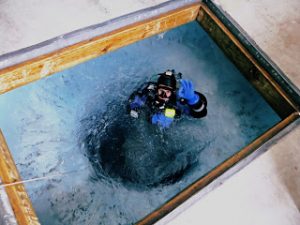 . I wrote grants to study this little-understood fish while at the University of Illinois and tried to learn as much as I could about CCAMLR and the research that goes into making policy decisions.
. I wrote grants to study this little-understood fish while at the University of Illinois and tried to learn as much as I could about CCAMLR and the research that goes into making policy decisions.
I am very excited to be a 2016 Knauss Fellow in the National Marine Fisheries Service Office of International Affairs and Seafood Inspection. I was placed within this office after a grueling but rewarding week of presentations and interviews in Washington, DC. I traveled to DC with 53 other incredible finalists for placement with hosts in the federal government. We heard presentations from the 56 possible host offices on projects ranging from fisheries, satellites, climate change, habitat, and many more. Over the next two and a half days I interviewed with 15 different offices, the majority of which were within NOAA, and by Friday I selected placement in the Office of International Affairs and Seafood Inspection.
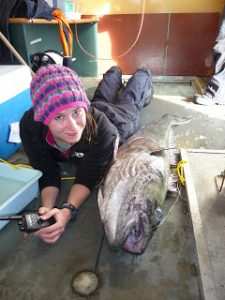 Though I do not know specifically what I will be working on, some of the projects could include the US-Mexico and US-Canada bilateral trade agreements, work with the International Convention for the Conservation of Atlantic Tuna, work with CCAMLR, and fishery bycatch policy. I will have a year of intensive international fisheries policy training where I am sure to learn a lot.
Though I do not know specifically what I will be working on, some of the projects could include the US-Mexico and US-Canada bilateral trade agreements, work with the International Convention for the Conservation of Atlantic Tuna, work with CCAMLR, and fishery bycatch policy. I will have a year of intensive international fisheries policy training where I am sure to learn a lot.
Lauren Fields, University of Illinois’ 2016 Knauss Marine Policy Fellow, received her PhD from the Department of Animal Biology at the University of Illinois in May. She started on February 1, 2016 with NOAA in Maryland.
For more information about the Knauss fellowships and other opportunities, please visit the Fellowship and Scholarship page.
December 7th, 2015 by iisg_superadmin
In late November, the 2016 Knauss Fellowship finalists from around the Sea Grant network met in Washington D.C. for a week to sort out where each will be working in the coming year. Over the week, the finalists interview for positions and try to match their skills and interests with agencies and legislators who are also looking for just the right person.
The Knauss fellowship provides a unique educational experience to students who have an interest in ocean, coastal and Great Lakes resources and in the national policy decisions affecting those resources. The program matches highly-qualified graduate students with “hosts” in the legislative and executive branches of government for a one year paid fellowship. This year, IISG had two finalists attending placement week.
Lauren Fields, who recently finished her PhD at the University of Illinois, will be a foreign affairs fellow with NOAA Fisheries Office of International Affairs and Seafood Inspection. This position reflects her long dedication to fish biology in the Antarctic waters. She has a particular interest in the Antarctic toothfish.
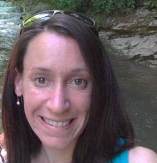
A Purdue University graduate, Sarah Stein will also be involved with NOAA fisheries work. For the year of 2016, she will hold the titles of executive secretariat and fisheries science coordinator in the Fisheries Office of Science and Technology. Sarah also has a rich history studying fisheries, but with a local focus. Her PhD dissertation study was centered on fish recruitment in southern Lake Michigan river mouth habitats.
If you are interested in applying to be a Knauss fellow, the deadline for 2017 positions is February 12. Visit our
Fellowship page for more information on this and other fellowship opportunities.
August 10th, 2015 by iisg_superadmin
Alyssa Hausman, a master’s student in environmental science at Indiana University, shares her experiences as a Knauss Fellow at the U.S. Fish and Wildlife Service.
I have had great experiences working with the Knauss fellows in the past, so when I started graduate school in 2012, I knew that this fellowship was an opportunity that I couldn’t afford to not pursue.
After an extensive application process, I found out last June that I was a finalist for the 2015 fellowship class as an executive fellow. As one of 40 executive fellows, I had a wide-range of offices and positions that I could potentially be placed in. Executive fellows placements span a range of departments: Commerce, Interior, Navy, Energy, and independent agencies such as the EPA and National Science Foundation.
After a daunting placement week, complete with 15 back-to-back interviews, I was placed with U.S. Fish and Wildlife Service — an agency dedicated to conserving fish, wildlife, and plants and their habitats. My fellowship with the Service’s Division of Congressional and Legislative Affairs provides me the opportunity to engage the legislative branch on important wildlife issues, and even work alongside Knauss fellows in the legislative branch. My work so far has focused on the Endangered Species Act, coastal resources, and wildlife, and sport fish restoration.
Throughout the course of the fellowship, I have been able to visit various Service assets, including Blackwater National Wildlife Refuge and the National Wildlife Repository. I recently spent a month in the Service’s regional office outside of Denver, Colo., which included a short trip to view conservation efforts in the Dakotas. These opportunities have taught me so much about the Service’s efforts on important issues that I do not work on directly, such as invasive species control, wildlife trafficking, and habitat conversion.

The National Wildlife Repository is responsible for receiving wildlife items that have been forfeited or abandoned to the U. S. Fish and Wildlife Service.
Now that I am half-way through my fellowship year and the next cohort of fellows has been selected, it is time for me to consider my next steps seriously. I have greatly enjoyed my time so far working with the Service and hope that I will have the opportunity to continue working with the agency, whether it be within the agency or outside as a partner.
Regardless of where I end up in February, I am looking forward to being a part of the Knauss alumni network and maintaining the personal and professional relationships that I’ve developed with my peers in the fellowship.
January 15th, 2015 by iisg_superadmin
As the 2014 Knauss season wraps up, IISG-sponsored graduate student Katherine Touzinsky wrote in to update us on her work at the U.S. Army Corps of Engineers since we last heard from her in August.
The last time I wrote for the IISG blog, I was overwhelmed with gratitude for how far the Knauss Fellowship had taken me—both figuratively through professional and personal development and literally by zig-zagging across the country. Since then, the travel and learning has not slowed down. I have eaten lunch on a dredging rig in the Gulf of Mexico, visited a research laboratory in Athens, Greece, attended a conference on deltas and climate change in the Netherlands, and explored the Everglades learning about the impending consequences of invasive species and climate change.
 The fellowship is now coming to a close, and the tides are changing at work. The open-ended learning ended a few months ago when I committed the majority of my time to a new and exciting project with the U.S. Army Corps of Engineers.
The fellowship is now coming to a close, and the tides are changing at work. The open-ended learning ended a few months ago when I committed the majority of my time to a new and exciting project with the U.S. Army Corps of Engineers.
Ever since the devastation of 2011, when over 14 weather and climate-related events—Hurricane Sandy being the most noteworthy—resulted in an unprecedented loss of lives and property, many federal agencies have begun their own investigation of climate change and disaster preparedness under the broad headline of “resilience.”
Resilience is an ambiguous word that can mean different things depending on the case and application, but most definitions include four key aspects: prepare, resist, recover, and adapt. Because the Corps is in charge of the nation’s water resources infrastructure, there is a huge need to investigate these concepts and research the best way to apply resilience to Corps policy and practice. I have been offered the opportunity to assist with much of this initial research. While it is intimidating to face such a huge issue and figure out how to recommend solutions for such a huge and venerable organization like the Corps, I wake up every day excited to learn more.
This coming February, we are working on a joint U.S. Army Corps and NOAA workshop to quantify resilience in Mobile Bay, AL. I will help test the method by working with community experts from the Mississippi-Alabama Sea Grant Consortium and the local port authorities to be vetted later this spring by the National Academy of Sciences Transportation Research Board.
Despite all of this excitement, I know that my Master’s thesis is still waiting for me. Luckily, I have been given the opportunity to continue working in Washington D.C. at the Corps headquarter office and will work part-time on my thesis. I’m brainstorming possible locations to work on the thesis—it would be great to say that I wrote a chapter or two in the Library of Congress!
The Knauss Fellowship has been an unbelievable opportunity that continues to unfold!
January 14th, 2015 by iisg_superadmin
A closer look at web tools and sites that boost research and empower Great Lakes communities to secure a healthy environment and economy.
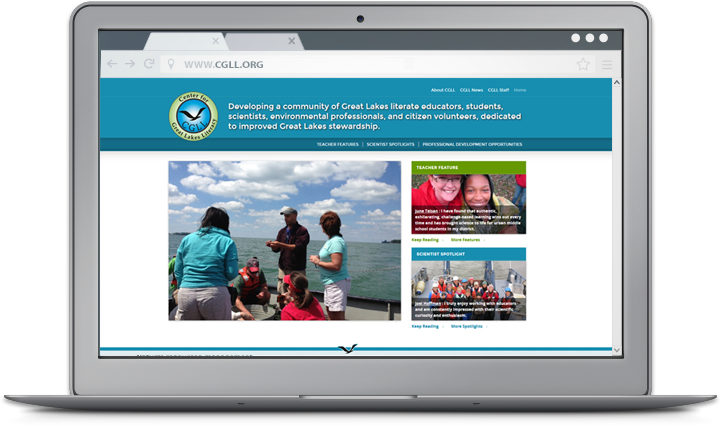.png) Educators interested in strengthening aquatic science programs and encouraging Great Lakes stewardship—look no further than the new Center for Great Lakes Literacy (CGLL) website.
Educators interested in strengthening aquatic science programs and encouraging Great Lakes stewardship—look no further than the new Center for Great Lakes Literacy (CGLL) website.
Created by Sea Grant educators throughout the region, the site is a one-stop-shop for classroom activities designed to boost Great Lakes literacy. Educators will find information on and links to teacher-tested curriculum like Fresh and Salt and Estuaries 101. And the Teacher Feature allows visitors to hear about education success stories directly from colleagues across the region.
Visitors to the site can also learn about the latest professional development opportunities available throughout the region. For example, teachers interested in the annual Shipboard Science Workshop, held this year on Lake Michigan, can find workshop information and application deadlines. Featured blogs also make it possible to read about teacher experiences at past CGLL workshops and follow along with the latest projects.
For more information on upcoming educator workshops and available curriculum, contact Terri Hallesy.





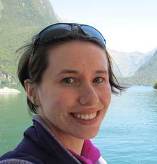



.png)
